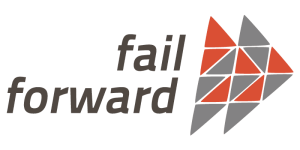“Feedback is great but if you just lived and breathed it – it’s hard to hear.”
This insight from one of my clients perfectly captures a major barrier to closing feedback loops. Hearing feedback is hard. Accepting the feedback someone gives you, really considering it and then incorporating it into your actions, is a scary and deceptively difficult thing to do. Particularly if that feedback is on a mistake we made or a challenging experience. I know this. I spend my days helping others capture the strength of their failures to drive learning, innovation and ultimately better performance. Closing feedback loops is essential to that work, and even I have a hard time sitting down to review feedback from my clients. I know that their feedback will improve my practice if I can internalize it, but just like my clients I struggle to move past fear to embrace feedback.
The good news is that in my work with over 100 businesses, philanthropic funders, civil society organizations, aid agencies and governments I have uncovered practices that help people truly hear feedback. My clients who are best at closing feedback loops in their work are usually employing at least one of these tips.
- Accommodate your stress response. Feedback, especially feedback on mistakes we’ve made, often pushes us into a stress response where rational thought is very difficult. Masters of closing feedback loops employ tricks to dissipate their stress response, leaving them truly receptive to feedback. This might be as simple as giving yourself time between receiving feedback and reflecting on it. Walk away, grab a coffee, and only react to the feedback once your feeling of stress has receded. Over time, responding to feedback calmly and receptively will start to be part of your conscious identity – and psychologists like Judith Lichtenberg argue that changing your self-identity is the most powerful and lasting way to change your behavior.
- Use translators to build trust. I have seen time and again that power imbalances and lack of credibility are the two biggest threats to interpersonal and interorganizational trust. And where there is no trust, it’s hard for people to hear and incorporate feedback into their work. In both cases, translators can help establish that missing trust element. In cases of power imbalance, asking a trusted peer of the person for whom you have feedback to relay it can help the recipient accept the feedback. Although this might seem counter-intuitive in this era of emphasis on transparency and directness, I have seen this work well. The opposite case, where the person relaying feedback lacks credibility, occurs often with external evaluators of non-profits and auditors for businesses. External evaluators and auditors can be seen to not ‘get it,’ even when their external perspective contains valuable feedback. Employing insiders to ‘translate’ the feedback can help it be accepted and acted upon. When I was working with a group of healthcare professionals to build a system to track serious incidents in hospitals, my feedback on the system only gained traction when I channeled it through a healthcare ‘translator.’
- Reframe feedback as a gift. Usually, the person giving you feedback is doing so with good intentions. They are taking the time to invest in your growth and improvement. The more you can focus on that investment and view feedback as a gift someone is giving you, the easier it becomes to act in line with it. But as with any gift, you shouldn’t be afraid to decline what isn’t useful to you. You wouldn’t display a gift you think shows awful taste on your mantlepiece, nor should you feel compelled to act on feedback you truly think doesn’t support the improvement of your work. Relieving the pressure to act on every piece of feedback should help you accept and act on the feedback that is valuable. Take the time to reflect and decide what feedback helps you choose a wise path forward.
I worked with a CEO with a deep commitment to these practices. A post-mortem of a rocky period for his organization led to a long list of feedback on his leadership style. As I shared it with him, I saw his stress levels rise. But he stepped back, mastered his defensive reaction, and reminded himself this feedback was an investment in him. He was open with his team about what feedback he had internalized and would respond to and what he had decided not to act on, taking a step toward rebuilding trust that had been lost.

Ashley Good, founder of Fail Forward, the world’s first failure consultancy, supports people and organizations to acknowledge, create and evolve from failure. A winner of the Harvard Business Review/McKinsey Innovating Innovation Challenge, Fail Forward helps businesses, funders and non-profits harness their failures to learn, innovate and build resilience. Before launching Fail Forward, Ashley worked in Cairo with the United Nations Environment Programme and as a management consultant in Vancouver, Canada.
Three Things Thursday is a weekly series highlighting 3 (easy) things that people can do in their day-to-day work lives to incorporate feedback and adapt based on it. Leading up to the Feedback Summit, we want to hear feasible feedback actions from across the Feedback Labs community. Have you incorporated feedback into your work? Do you have advice on how to adapt your work based on feedback? If you’d like to share your or your organization’s experiences on the blog please contact [email protected]








